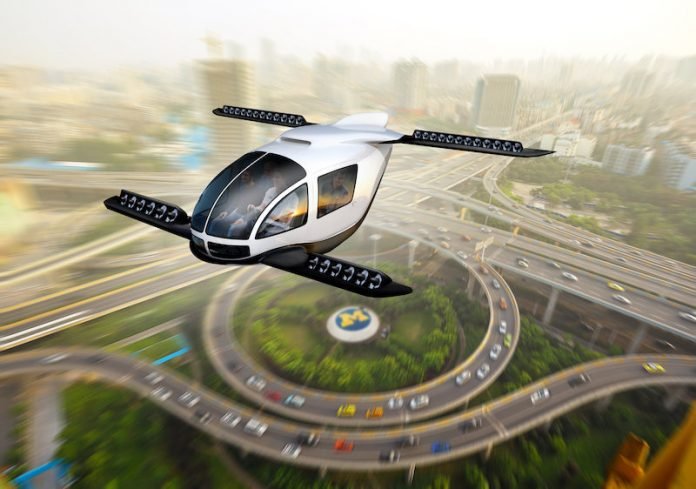
In a new study, researchers found that flying cars may play a big role in people’s long trips.
Flying cars have appeared in many sci-fi movies and novels. For example, in the 1960s animated sitcom The Jetsons, George Jetson commutes to work in his family-size flying car.
The flying car can miraculously transform into a briefcase when they finish the trip.
In the current study, the team found that these fly cars, or electric vertical takeoff and landing aircraft (VTOLs), may not benefit short trips in daily life.
However, they may play an important role in long trips between cities.
The research was conducted by a team from the University of Michigan and Ford Motor Co.
According to the team, VTOLs can offer the convenience of vertical takeoff and landings like a helicopter and the efficient aerodynamic flight of an airplane.
They will be very useful in congested cities or in places where there are geographical constraints.
In the study, the team examined the energy use, greenhouse gas emissions and time savings of VTOLs compared to ground-based passenger cars.
They used publicly available information to create a physics-based model that computes energy use and greenhouse gas emissions for electric VTOLs.
They found that VTOLs with full occupancy could outperform ground-based cars for trips between cities.
For example, for trips of 100 km, a fully loaded VTOL carrying a pilot and three passengers had lower greenhouse gas emissions than ground-based cars with an average vehicle occupancy of 1.54.
The greenhouse gas emissions related to the VTOL were 52% lower than gasoline vehicles and 6% lower than battery-electric vehicles.
For energy use, VTOLs produce zero emissions during flight, but their batteries need electricity generated at power plants.
The team suggests VTOLs could help mutually align the sustainability and business.
There are high passenger occupancy better for emissions and significant time savings.
In addition, VTOLs may overcome some limitations faced by electric vehicles and self-driving cars.
This is the first comprehensive sustainability assessment of VTOLs.
Currently, several companies and institutes around the world, such as Airbus, Boeing, Joby Aviation, Lilium, and NASA have developed VTOL prototypes.
The researchers hope their findings could provide valuable information for better designs of VTOLs.
Future work needs to assess the viability of VTOLs, including cost, noise and societal and consumer acceptance.
The senior author of the study is Gregory Keoleian, director of the Center for Sustainable Systems at U-M’s School for Environment and Sustainability.
The study is published in Nature Communications.
Copyright © 2019 Knowridge Science Report. All rights reserved.



